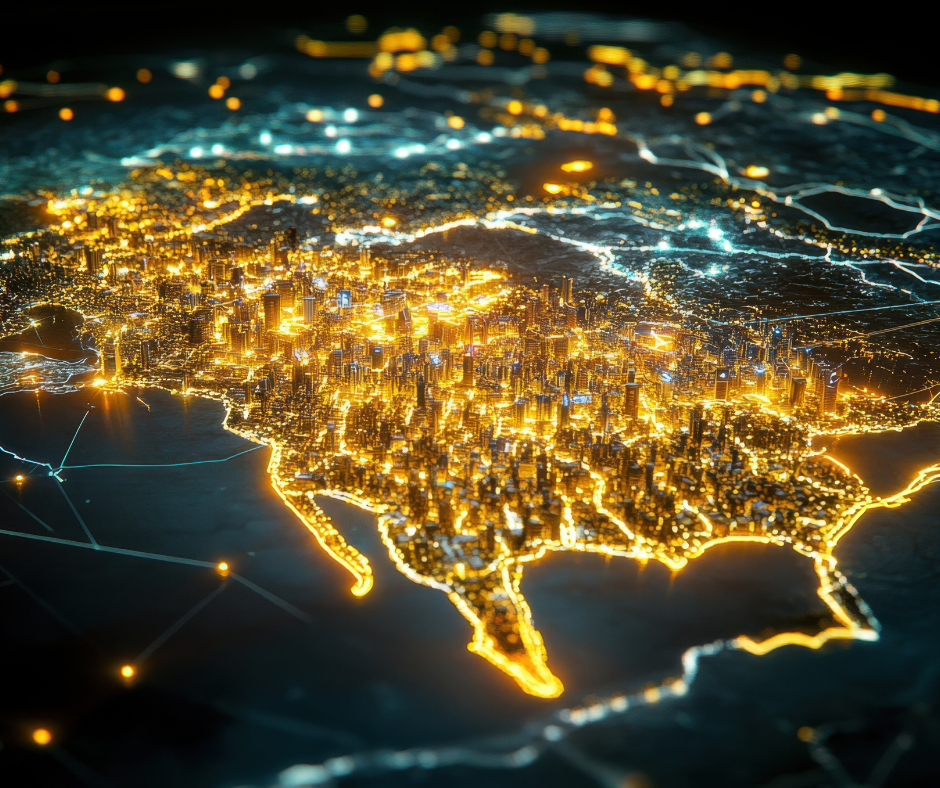Introduction: The Rise of AI and Machine Learning
Artificial Intelligence (AI) and Machine Learning (ML) have revolutionized industries across the world, from healthcare and finance to defense and governance. These technologies are reshaping how businesses operate, how governments function, and how individuals interact with the digital world. While AI presents opportunities for efficiency, innovation, and economic growth, it also raises significant legal and ethical challenges. As AI systems become more powerful and autonomous, concerns around accountability, bias, security, and privacy have come to the forefront.
Governments, businesses, and policymakers must navigate the complex landscape of AI regulation while ensuring that ethical principles guide the development and deployment of these technologies. This article explores the legal and ethical implications of AI and ML, highlighting key issues, potential risks, and frameworks that can help balance innovation with responsibility.
Legal Implications of AI and Machine Learning
1. Data Privacy and Protection
AI and ML systems rely on vast amounts of data to function effectively. However, the collection, storage, and processing of personal data pose serious privacy concerns.
- GDPR (General Data Protection Regulation): The European Union’s GDPR sets strict rules on data collection, requiring informed consent and transparency from companies that use AI. AI systems must ensure compliance with such regulations to protect user privacy.
- CCPA (California Consumer Privacy Act): Similar to GDPR, the CCPA gives consumers the right to know how their data is used and allows them to request its deletion. AI companies operating in California must comply with this law to avoid legal repercussions.
- Data Breaches and Security Risks: AI systems are prime targets for cyberattacks. The unauthorized access or misuse of sensitive data can result in financial penalties, lawsuits, and reputational damage.
2. Intellectual Property Rights
AI-generated content, inventions, and creative works present a legal grey area when it comes to ownership and intellectual property (IP) rights.
- Who Owns AI-Created Works? AI can generate artwork, music, and even patentable inventions. Courts and policymakers are still debating whether AI itself can hold IP rights or if these should belong to the developers.
- Copyright and AI: AI-powered tools like ChatGPT, DALL·E, and Midjourney have raised concerns over whether they violate copyright laws by using existing datasets to generate content.
3. AI Accountability and Liability
Determining accountability when AI systems cause harm is one of the most pressing legal issues.
- Product Liability: If an autonomous vehicle causes an accident, who is responsible—the manufacturer, the software developer, or the user? Current legal frameworks struggle to assign liability in such cases.
- AI Bias and Discrimination Lawsuits: If an AI system denies a loan application based on biased algorithms, companies may face discrimination lawsuits. Ensuring fairness and transparency in AI decision-making is crucial to avoid legal challenges.
4. AI in Criminal Justice and Surveillance
AI-powered facial recognition, predictive policing, and surveillance technologies are increasingly being used by law enforcement agencies.
- Ethical Surveillance vs. Privacy Invasion: Governments must strike a balance between national security and individual privacy rights. Unregulated use of AI for surveillance can lead to mass data collection, which may violate civil liberties.
- Bias in AI-Based Law Enforcement: Studies have shown that facial recognition AI has higher error rates for minority groups, leading to wrongful arrests and discrimination. Governments must ensure AI is used responsibly in the justice system.
Ethical Implications of AI and Machine Learning
1. Bias and Fairness in AI
AI models learn from historical data, which may contain biases. If AI is trained on biased datasets, it can reinforce and amplify existing inequalities.
- Discrimination in Hiring: AI-powered recruitment tools have been found to favor certain demographics over others. Amazon scrapped an AI hiring tool after it was found to be biased against women.
- Healthcare Disparities: AI in medicine must be carefully monitored to ensure fair treatment for all patients, regardless of race, gender, or socioeconomic status.
2. Job Displacement and Economic Inequality
AI and automation threaten to replace millions of jobs, particularly in manufacturing, customer service, and transportation.
- Reskilling the Workforce: Ethical AI adoption must include policies for retraining workers displaced by automation.
- Universal Basic Income (UBI): Some experts propose UBI as a solution to offset AI-driven unemployment.
3. AI in Warfare and Autonomous Weapons
The rise of AI in military applications poses significant ethical dilemmas.
- Killer Robots and Autonomous Weapons: AI-powered weapons can make independent kill decisions, raising moral and ethical concerns about accountability in warfare.
- International Regulations Needed: The UN and other global organizations are pushing for treaties to ban or regulate autonomous weapons to prevent potential misuse.
4. Deepfakes and Misinformation
AI-generated deepfake videos and synthetic media can be used to spread false information, manipulate elections, and damage reputations.
- Fake News Amplification: AI-powered algorithms can spread misinformation at an unprecedented scale, influencing public opinion and undermining democracy.
- Ethical AI Governance: Policymakers and tech companies must collaborate to regulate AI-generated content while preserving free speech.
Building a Legal and Ethical AI Framework
1. AI Regulation and Policy Development
Governments and organizations must establish legal frameworks that define the ethical use of AI. Some key regulatory efforts include:
- The EU AI Act: The European Union has proposed the world’s first comprehensive AI regulation to ensure safety, transparency, and accountability in AI deployment.
- The US National AI Initiative: The United States is investing in AI research and governance to ensure responsible AI development.
2. Transparency and Explainability
AI systems must be transparent about how they make decisions.
- Explainable AI (XAI): AI developers must design systems that provide clear explanations for their decisions, reducing black-box AI concerns.
- Ethical AI Audits: Independent audits can assess AI models for bias and fairness before deployment.
3. Ethical AI Development Practices
Companies must prioritize ethical AI development by:
- Ensuring Diversity in AI Training Data: Diverse datasets help reduce bias and improve fairness in AI decision-making.
- Embedding Ethical AI Teams: Businesses should have dedicated teams to assess the ethical risks of AI products.
4. Collaboration Between Governments, Businesses, and Academia
Global cooperation is crucial to developing a unified approach to AI governance.
- Public-Private Partnerships: Governments should work with tech companies to create fair AI policies.
- International AI Ethics Committees: Establishing global committees to regulate AI ethics can help create standardized guidelines.
Conclusion: Balancing Innovation and Responsibility
AI and ML are transformative forces that can drive progress and innovation, but they must be developed and deployed responsibly. As AI becomes increasingly integrated into our lives, businesses, policymakers, and researchers must work together to address its legal and ethical implications.
The challenge is to harness AI’s potential while ensuring fairness, accountability, and transparency. Governments must implement strong legal frameworks, businesses must adopt ethical AI practices, and society must remain vigilant in holding AI systems accountable.
The future of AI should not be dictated by profit alone but by a shared vision of progress that upholds human dignity, security, and ethical responsibility. The decisions we make today will shape the AI-driven world of tomorrow—let us choose wisely.






